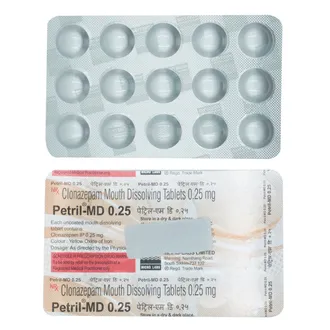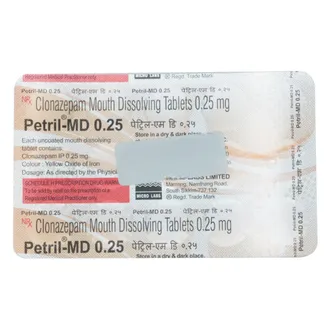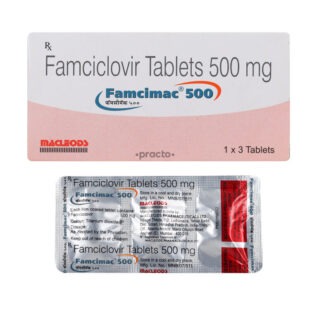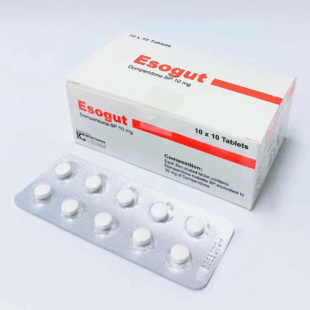Petril-MD 0.25 Tablet is a prescription medication primarily used to manage epilepsy and anxiety disorders. It works by calming the brain and reducing the abnormal and excessive activity of nerve cells. The tablet can be taken with or without food, but it is important to take it at the same time each day to maintain a consistent level of the medication in the body. The dose and duration should strictly follow your doctor’s instructions, as the medicine has a potential for dependence. If a dose is missed, it should be taken as soon as possible, and the full course should be completed even if you start feeling better. Stopping the medication abruptly can increase seizure frequency and may cause symptoms such as nausea, anxiety, flu-like sensations, and muscle pain.
Common side effects may include tiredness, low mood, or difficulty with coordination. The medication can also lead to dizziness and drowsiness, so it is important to avoid driving or operating machinery until you know how it affects you. Any unusual mood changes or feelings of depression should be reported to your doctor, as the medication may contribute to suicidal thoughts.
Petril-MD helps in reducing anxiety by regulating the brain chemicals responsible for triggering excessive worry and nervousness. This can relieve symptoms such as restlessness, fatigue, irritability, difficulty concentrating, and sleep disturbances, making it easier to carry out daily activities. The medicine should be continued consistently, even if symptoms improve, to avoid complications.
The tablet functions as a benzodiazepine, enhancing the effects of a natural chemical messenger called GABA. By doing so, it suppresses abnormal nerve activity in the brain, providing a calming effect.
Certain precautions should be observed while using this medicine. Alcohol should be avoided, as it can interact dangerously with the tablet. It is not recommended during pregnancy due to potential risks to the baby, though a doctor may prescribe it in critical situations if the benefits outweigh the risks. For breastfeeding mothers, the medicine is generally considered safe as it passes into breast milk only in minimal amounts. Patients should exercise caution when driving or performing tasks requiring focus, as drowsiness may occur. Dose adjustments may be necessary for individuals with kidney or liver disease, and the doctor should be consulted in such cases.
In the event of a missed dose, take it as soon as possible, but if the next scheduled dose is near, skip the missed one rather than doubling up. Following the prescribed schedule helps maintain the effectiveness of the treatment and prevents complications.
Vendor Information
- Address:
- No ratings found yet!
-6%



















Reviews
There are no reviews yet.